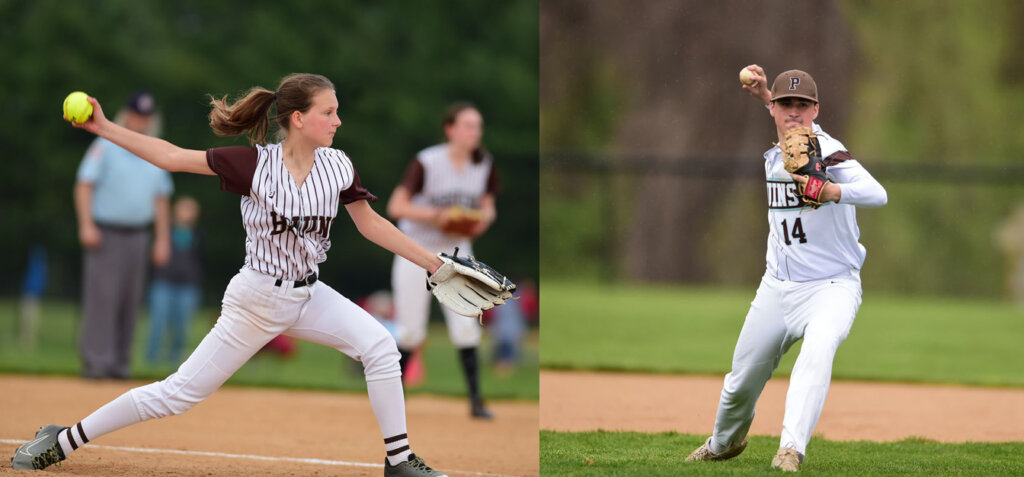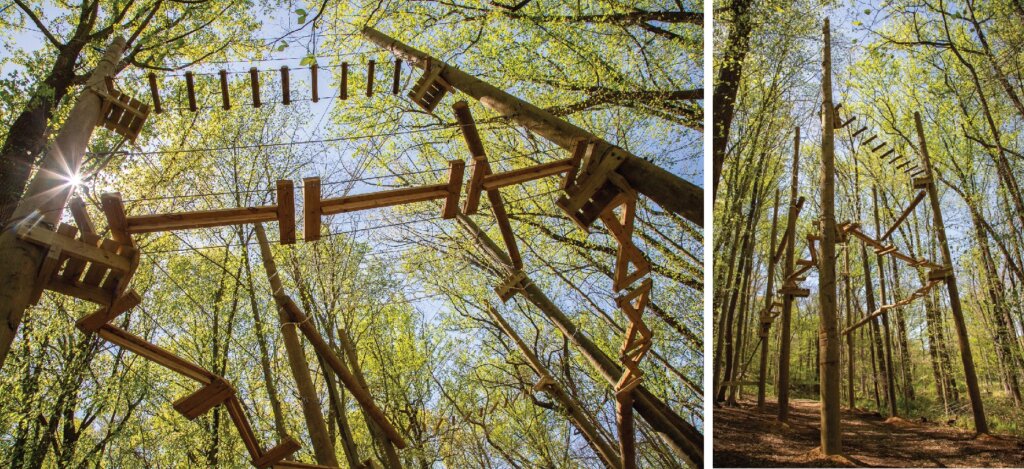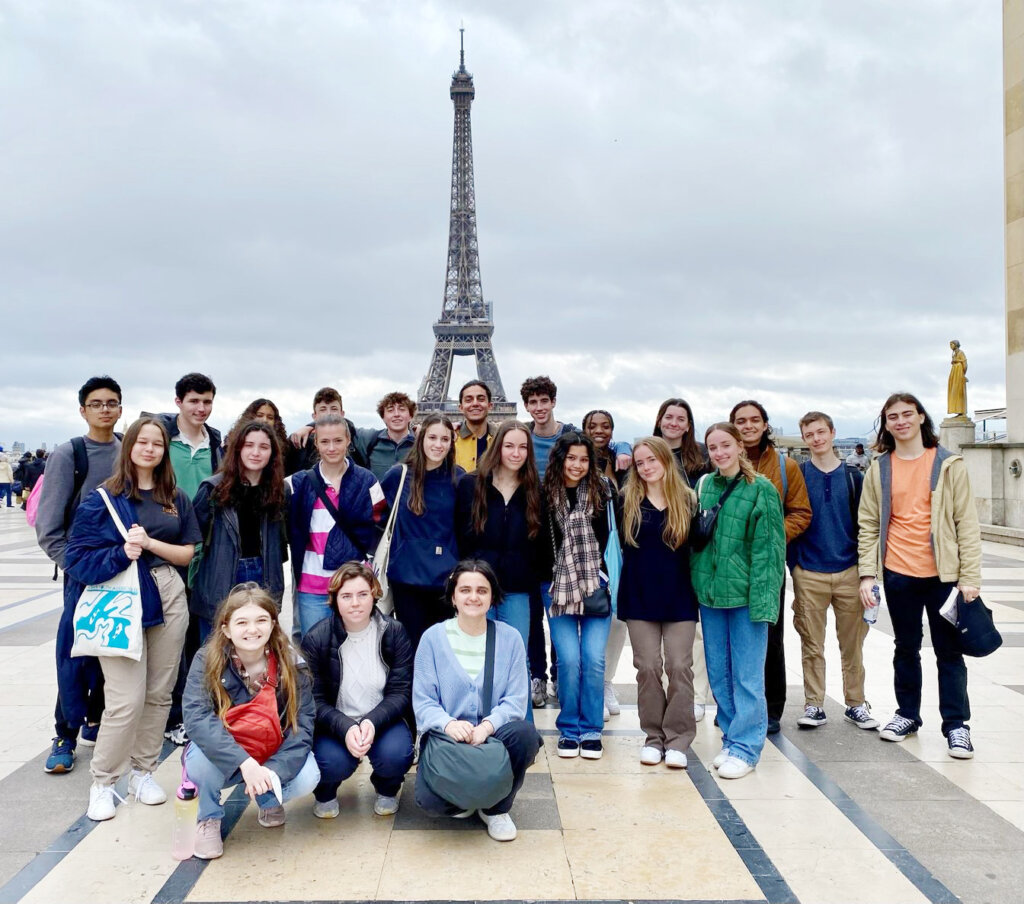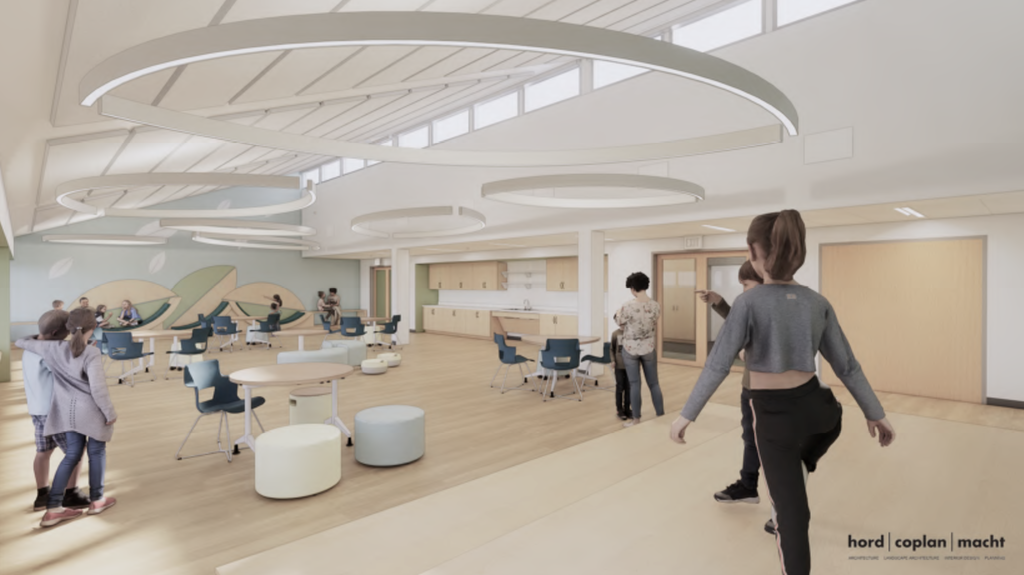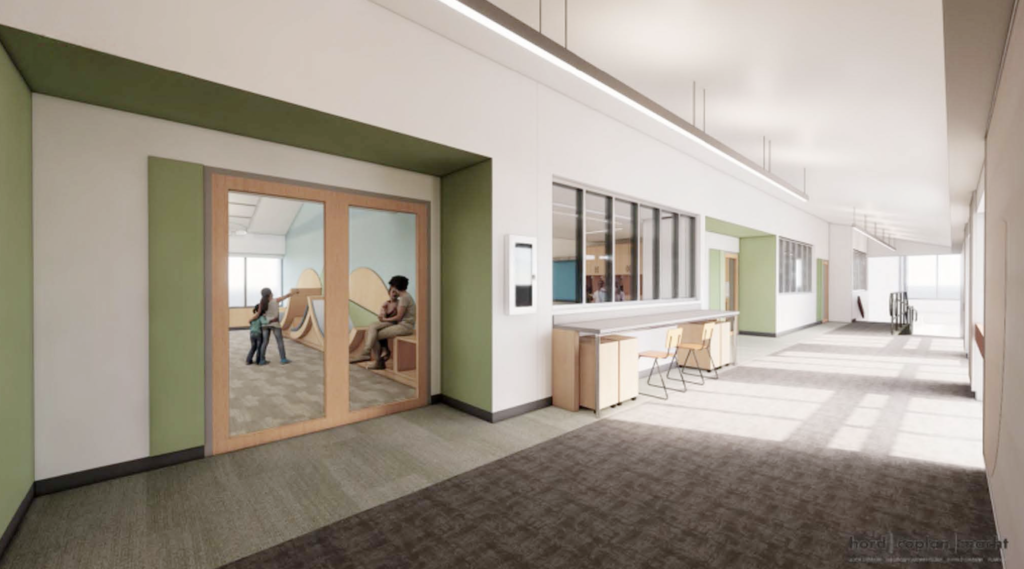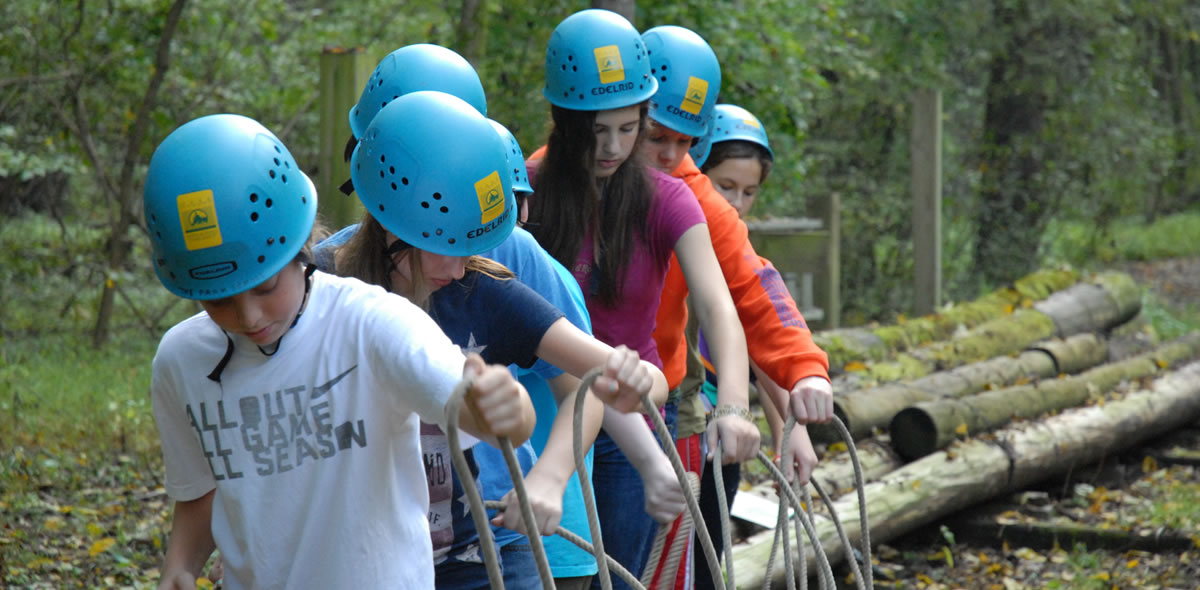Program of Studies
Reading, writing, science, mathematics, and the arts form the core of the Lower School curriculum.
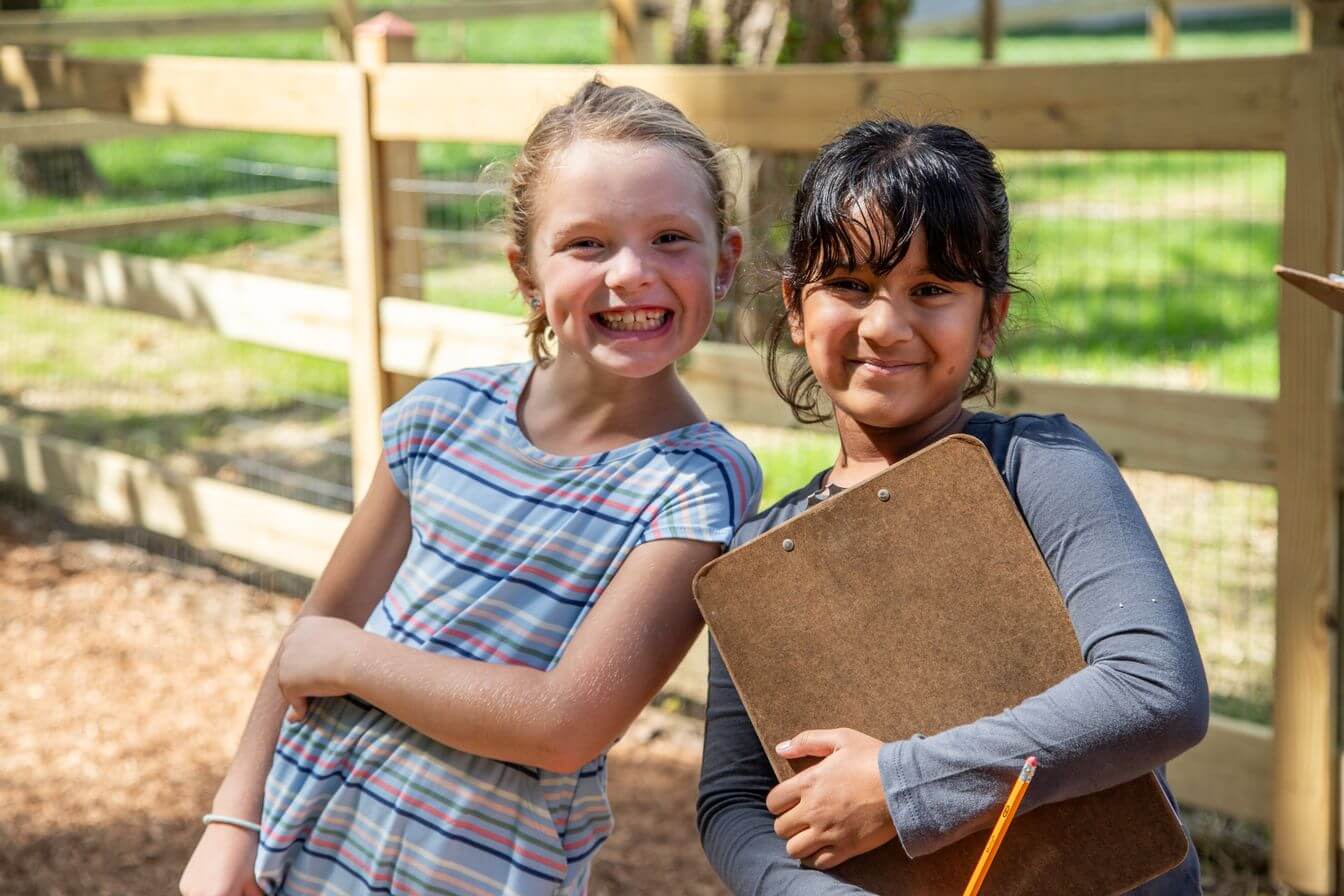
To teach these primary skills and to meet the individual needs of each student, teachers draw upon broad expertise in subject areas and extensive knowledge of child development.
Reading
Teachers from Pre-Kindergarten through the fifth grade expose children to a print-rich environment and build an understanding of text. They read to children regularly to develop the children’s listening skills as well as their enjoyment of reading. They model reading behaviors for students to emulate, and confer with students about those behaviors and strategies. They provide guidance on choosing a variety of fiction, nonfiction, and poetry from different cultures and countries, and encourage students to explore a variety of texts for independent reading. There are opportunities for students to respond critically to what they have read and to share their reading with others.
Throughout their Lower School experience, students are introduced to and implement the following reading skills: summarizing, synthesizing, questioning, inferring, visualizing, and making connections.
Writing
Teachers from Pre-Kindergarten through the fifth grade teach conventions of writing, including handwriting, capitalization, punctuation, syntax, and strategies for learning to spell new words. Students develop vocabulary through the study of language: wordplay, poetry forms, figurative language, grammar, phonics, and syntax. They are encouraged to reflect on their understanding of written language and to become aware that writing is purposeful. Students see modeling of writing behaviors, strategies, and structures through scaffolded lessons. Opportunities are provided for students to confer with peers and teachers, to develop written work, to write for a variety of audiences and purposes, and to share their writing.
Students learn about a range of tools that they can incorporate into their writing, namely sentence structure and variety; paragraph construction; strong adjectives, adverbs, and verbs; and figurative and descriptive language and sensory detail.
Library
The Lower School Library is a treasure trove of over 20,000 books. Librarians seek to provide materials that stimulate the imagination, engender curiosity, and reflect the multiplicity of different cultures, histories, and ecosystems. Children are encouraged to browse and explore, to pursue their own interests, and to experience the pure pleasure of books. Each library visit begins with a program in the story corner dedicated to reading aloud, storytelling, class discussion, special programs to supplement class curricula, or learning research skills. Afterward, there is time set aside for browsing and silent reading. Lower School librarians enlighten students with their passions for folklore, literature, history, and natural science.
Mathematics
In our constructivist program, children explore mathematical ideas, practice reasoning, and apply problem-solving skills. From early exploration of the properties of numbers and shapes through complex problems of fractions and decimals, the objective is to build and secure basic computational skills through the development of deep conceptual understanding of
mathematics. Children measure, weigh, build, and work with an array of hands-on materials as they explore numerical and spatial relationships. These concrete exposures are used to anchor abstract concepts, giving children many opportunities to experiment in solving open-ended problems and to apply mathematical skills for real life, practical purposes. Through
these experiences, children come to recognize that mathematics is a language that can be used to understand, interpret, and solve a wide variety of problems.
Music
General music classes for all Lower School students are the foundation of music education. Students are introduced to elements of music including rhythm, melody, harmony, and form through singing, movement, games, and percussion instruments. From these activities, students gain knowledge and experience of music literacy, music performance, and music as a window into culture, diversity, and social justice. Discovery and creativity are at the heart of our teaching philosophy and students are encouraged to develop an understanding of themselves and others through music. In addition to general music instruction in all Lower School grades, fourth and fifth grade students participate in an exploratory instrumental program, chorus, and ensembles.
Physical Education
The mission of the Physical Education program is to provide students with a basic foundation of motor and manipulative skills, an understanding of the importance of physical fitness and sport, and the opportunity to develop effective personal and social skills. Students are expected to exhibit the Park Physical Education Habits of Mind, including giving their best effort, showing respect, participating in cooperative learning, playing fairly, and developing perseverance as we continue skill building. Our goal is to promote a positive learning environment that meets the needs and abilities of all students and encourages them to maintain a physically active lifestyle.
Science
For Park students, science is not just information gathering; it is an ongoing process involving investigating, questioning, reasoning, predicting, discovery, and problem solving. Lower School science teachers work with children and homeroom teachers to nurture the interest and capacity for science learning. Park’s 100-acre campus laboratory is where children collect and sort stream-bed samples, study the Monarch butterfly, identify seasonal changes in plant life on nature trails, and analyze plankton and water samples from the pond.
Spanish
The primary goals of the Spanish program are for children to develop communication skills and an understanding of the diverse cultures within the Spanish-speaking world. Students engage in developmentally appropriate language activities that develop listening and speaking skills in the early grades, with increased attention to reading and writing in the upper grades. Authentic cultural connections are purposefully woven into lessons enhancing students’ global perspectives. Lessons are designed to encourage students to participate both verbally and physically. The spiraling curriculum allows for the use of targeted vocabulary and language across grade levels.
Technology
Philosophy
At The Park School, we believe in the thoughtful use and integration of technology to enhance student learning. In keeping with the school’s mission to support young people in becoming confident questioners and responsible citizens of a rapidly evolving world, technological tools and programs are regularly evaluated, refined, and provided with support and learning goals in mind. In all cases, we make deliberate and well-informed decisions about the use of technology. We believe that hese decisions should be based on pedagogical considerations. Therefore, the school offers a variety of curricular and co-curricular experiences for students and professional development opportunities for teachers, so that they are fully capable of using robust, powerful tools and computational thinking skills for authentic learning and self-discovery.
Innovation and inquiry are complemented by the use of technology throughout the Lower School. Classroom teachers use interactive media through interactive projectors, tablets, and laptops. Formal computer instruction begins in first grade and continues to build as students use laptops, iPads, and interactive whiteboards throughout their Lower School years. The Lower School technology coordinator works closely with homeroom teachers and other special area instructors to develop integrated instruction based on the International Society for Technology in Education (ISTE) standards for students. These standards aim to help students fulfill the following roles and “thrive in a constantly evolving technological landscape.”
ISTE Standards for Students:
- Empowered Learner
- Digital Citizen
- Knowledge Constructor
- Innovative Designer
- Computational Thinker
- Creative Communicator
- Global Collaborator
Theme Studies, Social Studies, History
At Park, Social Studies is a core component of our academic program, falling under the heading of Theme Studies. In Lower School, each grade level participates in a year-long study of a central “theme” that acts as a bridge for the integration of math, science, and literacy across all disciplines. Social justice and social-emotional learning are deeply embedded in the Theme Studies at every grade, and themes become more focused on history in grades three through five. Examples of Theme Studies include the second grade focus on the interaction of people and place, and the fifth grade analysis of medieval cultures across the world.
Visual Arts
The Lower School visual arts and design program engages children’s curiosity and creativity. A Pre-Kindergarten through grade five curricular spiral ensures consistent development of skills and vocabulary from year to year. All students engage in drawing, painting, printmaking, sculpture, ceramics, and fiber arts. Through investigations in two and three-dimensional projects, children express their thoughts, feelings, ideas, and understandings. Students discover the affordances and constraints of tools and practice how to care for materials in the studio. Our “tools and materials” approach supports the development of independence, choice, and collaboration. Children grow as artists by implementing the “Studio Habits of Mind” — how to observe, develop craft, envision, express, stretch and explore, engage and persist, reflect, and understand the arts from around the world.
